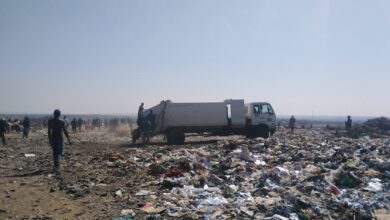Zim adopts new multi-drug resistant TB treatment regimen

Zimbabwe has adopted the new guidelines for treating multi-drug resistant Tuberculosis (MDR TB), with the treatment regimen now shortened from two years to nine months.
As a result, the Ministry of Health and Child Care is currently carrying out training of health care workers from the 10 provinces on these new guidelines.
The medication for MDR TB would be rolled out once health workers are fully capacitated to diagnose and offer treatment.
Zimbabwe is considered as one of the countries with the highest burden of drug-resistant TB, as about 400 to 500 people each year, have suffered from the disease in the last three years.
In an interview with CITE in Bulawayo, Director of the AIDS and TB unit in the Ministry of Health and Child Care, Dr Owen Mugurungi, explained the World Health Organisation (WHO) had come up with new medication to be taken in shorter periods.
“Now, the normal TB regiment is about six to eight months on average depending but if you then develop Drug resistant TB (DRTB) the treatment was for two years, meaning one is supposed to have injections and pills taken over 24 months. This is a long time in terms of outcomes and desired effect.
“Many people don’t have the desired outcomes or do well over the long period so WHO and partners were trying to develop medication that would be taken over a short period and we are now happy since 2016 there are new formulations. The new medicines whose backbone -fluroquinolones used for treatment is shortened from 24 months to nine months which we think is positive,” said the director.
Dr Mugurungi said Zimbabwe has adopted the new drugs and was now at a stage in which training of health care workers was on.
“We are providing them with capacity, first to make sure to make diagnosis for MDR TB is done and those people are provided with this short course. The new medication is associated with better success as people will go on to complete it in nine months,” he noted.
Dr Mugurungi said mining communities were hotspots for DR TB.
“Formalised mines are few and a lot of artisinal mining is happening and those are at risk for TB due to the nature of their job. They must take medication everyday but some go underground three to four days defaulting, eventually resulting in DRTB.
“We also know in some instance, where there is overcrowding or congestion such as prisons there is lots of TB. I wouldn’t say the problem in DRTB is worse in other areas except mines and prisons, where there is higher incidence,” he highlighted.
He added that threat of DR TB was high when patients had less food.
“People also tend to become more vulnerable or at risk of acquiring TB when they have no food. If you have TB and are on medication but have no food you will probably not adhere to treatment and chances of you developing DR TB are also high,” Dr Mugurungi said.
“This is why we also support patients with nutrition and transport.”
Deputy Director of the AIDS and TB unit in the Ministry of Health and Child Care, Dr Charles Sandy, said from routine surveillance data, the country was seeing an average of 400 to 500 people with DR TB annually for the last three years.
“When you look at it under the population perspective, this is a high burden of DR TB because of that, we are considered one of the high burden countries with DRTB in the world. The number might appear small but actually this is mainly due to complications associated with treatment duration, toxicity of the medication, the potential to spread to other people as it can just spread as easily as drug sensitive TB,” he said.
Dr Sandy said if not controlled, DR TB could be a burden to the economy and country in terms of managing it.
“From our statistics we seem to have higher per capita disease in the southern part of the country – Matabeleland South, Midlands, Masvingo while Matabeleland North seems to be on decline. This shows a possible association with movement of people back and forth to neighbouring countries. South Africa also has a higher burden than ours and sometimes the living conditions are not as appropriate and access to treatment is challenging for people who are illegal migrants,” he said.






